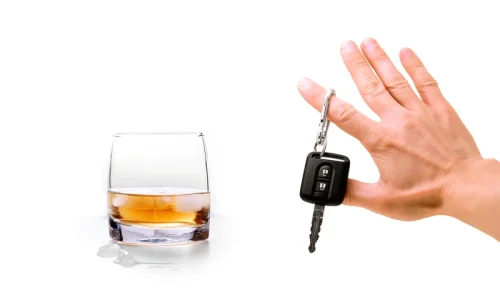
Alcoholism denial refers to the psychological defense mechanism that allows individuals struggling with alcohol addiction to refuse, minimize, or rationalize their drinking habits. It’s like putting on a pair of rose-colored glasses and refusing to see the negative consequences that arise from excessive alcohol consumption. During an intervention with a loved one, family members https://ecosoberhouse.com/article/consequences-of-drinking-and-driving-dui/ show love and support while setting clear boundaries around substance abuse and consequences related to drinking. Clinical interventionist Drew Horowitz explains that an intervention with an alcoholic is not a confrontation, a fight or an argument. It’s a family meeting—often facilitated by a professional who understands what it takes to motivate someone to enter treatment.
Careers – Join Our Team
Denial keeps them from getting help and taking the steps they need to take to get better. By knowing how alcoholism denial works, people who are dealing with addiction and those who care about them can work together to help each other get on track and stay better. Take our free, 5-minute substance abuse self-assessment below if you think alcoholism and denial you or someone you love might be struggling with substance abuse. The evaluation consists of 11 yes or no questions that are intended to be used as an informational tool to assess the severity and probability of a substance use disorder. The test is free, confidential, and no personal information is needed to receive the result.
Don’t Enable Their Behavior
People in alcoholic denial aren’t trying to harm others or avoid the consequences of their drinking. Instead, they’re dealing with a very real psychological aspect of addiction. The participants in an intervention could include the alcoholic’s spouse or partner, children, parents, friends, coworkers, employer, friends and other individuals who have been affected.
Relapse and the Hidden Dangers Behind “One Drink Won’t Hurt”
- They might downplay the frequency and amount of alcohol they consume or make excuses for their behavior when confronted by loved ones.
- But denial can also cause problems in your life, particularly if it keeps you from addressing a problem or making a needed change.
- Understanding a Twelve Step Recovery Program for alcohol addiction and the importance of ongoing recovery programming and support groups.
- In some instances, their denial causes them to fail to recognize how their substance abuse is affecting their lives.
- Depression can fuel addiction denial by causing low emotions, unhelpful thoughts, avoidance, or escape mechanisms.
- Remember, helping an alcoholic in denial requires patience, understanding, and empathy.
- If you’re seeking help for a teen, you can check out resources from the Family Resource Center or the Partnership to End Addiction.
Space constraints do not allow for an expanded examination of the phenomenon of changes in rates of endorsement of AUD criteria as individuals age, but that question will be revisited in a future paper. Our analyses searched for potential correlates of one form of denial to help clinicians and researchers better understand denial and to optimize their ability to identify these individuals who might benefit from advice. Although some prior studies reported a higher rate of denial in African American and Hispanic individuals (e.g., Clarke et al., 2016), that could not be adequately tested in the SDPS sample. Comparisons included demography, alcohol-related patterns and problems, drug use, as well as impulsivity and sensation seeking.
- For those dependent on a substance, talking to a healthcare provider is the best way to develop a plan for detoxing safely.
- Understanding the reasons behind alcoholism denial can shed light on why individuals refuse to acknowledge their drinking problem.
- Denial is a common way for people to deal with anxiety-provoking situations.
- Alcohol denial can involve lying about how much they drink, when they drink, and how those habits make them feel.
By giving yourself time, you might be able to accept, adapt, and eventually move on. To break through an alcoholic’s denial, try using strategies and techniques like open communication, expressing concern without judgment, and offering support. A supportive approach can help them feel understood and increase their willingness to address their drinking problem. Table 2 presents results predicting AUD proband denier status using a backwards elimination logistic regression analysis that included variables that differed significantly across deniers and non-deniers in Table 1. Four variables contributed significantly to the analysis including three of the criteria predicted in Hypothesis 5 along with a SUD on illicit drugs other than cannabis.


- For over 20 years Dr. Umhau was a senior clinical investigator at the National Institute on Alcohol Abuse and Alcoholism of the National Institutes of Health (NIH).
- Each person has a different experience and insight on their relationship with alcohol.
- Only by acknowledging there’s an issue can someone begin taking steps toward recovery.
- It’s because they don’t have up-to-date information on what constitutes excessive alcohol consumption.
